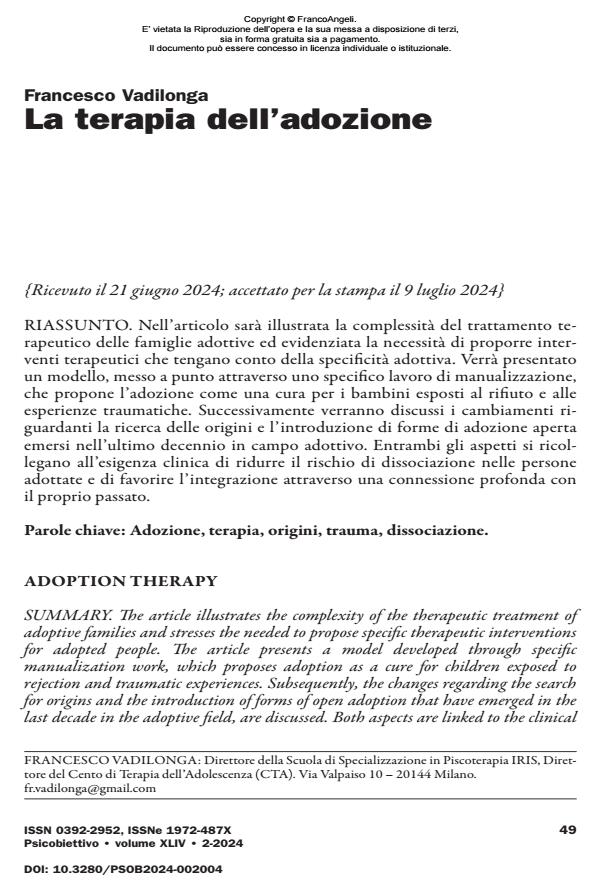Adoption therapy
Journal title PSICOBIETTIVO
Author/s Francesco Vadilonga
Publishing Year 2024 Issue 2024/2
Language Italian Pages 16 P. 49-64 File size 644 KB
DOI 10.3280/PSOB2024-002004
DOI is like a bar code for intellectual property: to have more infomation
click here
Below, you can see the article first page
If you want to buy this article in PDF format, you can do it, following the instructions to buy download credits

FrancoAngeli is member of Publishers International Linking Association, Inc (PILA), a not-for-profit association which run the CrossRef service enabling links to and from online scholarly content.
The article illustrates the complexity of the therapeutic treatment of adoptive families and stresses the needed to propose specific therapeutic interventions for adopted people. The article presents a model developed through specific manualization work, which proposes adoption as a cure for children exposed to rejection and traumatic experiences. Subsequently, the changes regarding the search for origins and the introduction of forms of open adoption that have emerged in the last decade in the adoptive field, are discussed. Both aspects are linked to the clinical need to reduce the risk of dissociation in adopted people and to promote integration through a deep connection with their past.
Keywords: Adoption, therapy, origins, trauma, dissociation.
Francesco Vadilonga, La terapia dell’adozione in "PSICOBIETTIVO" 2/2024, pp 49-64, DOI: 10.3280/PSOB2024-002004